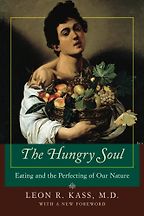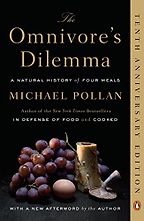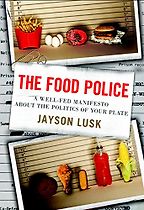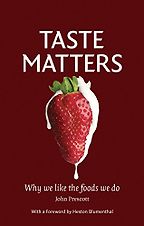As a forefather of food psychology, please help us understand this field—how is it disambiguated from nutritional psychology?
People have to eat food, but eating isn’t like putting fuel into your car. It isn’t just physiological; it’s psychology. It includes how people think about food, whether they worry about it or anticipate it. Meals are a social medium, a sharing experience.
For many people in the world, eating has a spiritual quality; it’s a way of communing with other human beings. Food is a meaningful source of pleasure, a source of worry and a form of identity. When you eat your country’s food, it’s an act of allegiance.
The Hungry Soul is your first selection. Please tell us about the book.
Leon Kass is a physician and a bioethicist who is an Emeritus Professor of Social Thought at the University of Chicago. So, he is really rooted in the humanities and the sciences, as is clear in this book.
The book is about how food is a form of expression for civilizations, from pre-Roman days to the present. The Hungry Soul is a telling title. Kass tells us that we eat and how we eat becomes part of who we are. For example, as he points out, we typically eat facing an interlocutor. We have napkins; we have forks; we have plates; we have knives; and we cut the food into small pieces. We talk while we are eating, while the person across the table is looking right at us.
“Every meal is a virtuoso performance, a demonstration of how civilized we humans have become”
Seeing food in someone else’s mouth is very off-putting, but we manage to eat, talk and breathe through our mouths. Every meal is a virtuoso performance, a demonstration of how civilized we humans have become. It’s an act of virtuosity to be able to carry on this biological function while talking about politics or the weather.
“Much of human life is organized around this necessity,” according to Kass. What does he mean by that?
He’s focused on the meal. Americans do a lot of snacking, but in most cultures the meal is the time when people eat. The French, for example, don’t think it’s a good idea to eat while they’re walking. In Kass’s view, eating McDonalds drive thru food in the car is a breakdown of civilization.
The Omnivore’s Dilemma, your next recommendation, goes into great depth about how food is produced. What is this book’s relation to food psychology?
Michael Pollan is an excellent journalist who specializes in the food domain. Like Kass, Pollan is a very good writer. Pollan’s view, like Kass’s, is very respectful of the past. He argues the way we ate eve hundreds of years ago is healthier way than the way Americans eat now.
Five Books interviews are expensive to produce. If you're enjoying this interview, please support us by donating a small amount.
He argues that how we eat should be part of our effort to make the world a better place or at least a more sustainable place. Food is how we get energy, but we should be mindful of how much energy it takes to get our food to the plate. He proposes relying more on whole foods and less on processed foods, like Oreo Cookies. He argues that unprocessed foods are more nutritious, more wholistic and better for the environment. So, Pollan argues that we should eat in a way that is mindful of our own health and also the health of the whole planet.
This book was broadly read and debated by foodies and progressive. Is the politicization of food something new or as old as well, the Old Testament?
There has been a long history of food as medicine. For instance, in the nineteenth century we had John Harvey Kellogg, a medical doctor who said our bodies are our temples. He developed and marketed cereal and a range of vegetarian foods, which were supposed to make you healthier.
“Food is an affirmation of who you are.”
As for the Old Testament, food is a statement of your identity. I am a Jew; I eat this way. I am Italian; I eat this way. Food is an affirmation of who you are. Countries are political entities. But Pollan isn’t just focused on the health of the individual–he’s focused on the health of ecosystem. That’s fairly new and had a big impact.
The Food Police: A Well-Fed Manifesto About the Politics of Your Plate is your next selection. Please tell us about this tome by agricultural economist Jayson Lusk.
This is not a well-known book. It’s an anti-Pollan book. Lusk argues we’ve gotten obsessed with organics and that there’s not really any justification for that. Organic foods, in his view—and there’s evidence for this—are not healthier. And there is evidence that they don’t taste better. Organics take up more land and they’re more expensive.
Lusk also takes on prevailing prejudices about technology and food. We are living much longer in part because food is safer than it used to be. Water, too, is much safer than it used to be due to technological advances. Technology can have bad effects on food, and we have to worry about that. But technology is not inherently bad. The best example of this is genetically modified foods, which he also discusses. Genetically modified food can have many advantages: for example, they take less land to grow, and thus they preserve open land.
Get the weekly Five Books newsletter
He acknowledges that you can argue against genetically modified foods, but he points out that most people who argue against them are actually morally opposed to them. They think Monsanto is evil. They don’t think we should play with nature. But in fact, we’ve been playing with nature for a long time. We take water from its source and purify it. Technology is not bad; technology is good, but it has to be controlled, it has side effects and we have to deal with them. People think of the side effects of new technologies and they don’t realize that we have a long history dealing with side effects, for instance in medicine. We try to keep the good part and get rid of the bad side effects.
“Those against genetically modified foods don’t think we should play with nature. But in fact, we’ve been playing with nature for a long time”
So, the anti-technology view doesn’t make a lot of sense in his view (and in my own, too). We have to be reasonable. Nature, after all, is sometimes awful. Death is part of nature. Technology can trigger great advances, but it also can produce problems. What we have to do is use technologies that help make the planet better and control those that don’t.
How do the economics of eating impact food psychology?
There are two main determinants of whether people will eat something. First, accessibility: can you get it? Second, cost. Lobster could be your favorite food, but unless you’re wealthy, you don’t eat it very often because it’s expensive. A lot of the cheapest foods are high-carbohydrate foods, fast food. Your food budget is controlling what you can eat.
Next, you recommend The Primal Cheeseburger. Why?
It’s a book by my late wife, Elizabeth, who was a cookbook writer. But it’s not a cookbook.
The book deconstructs the cheeseburger—the bun, its toppings and condiments—and talks about where each of these components come from and how they are produced. For example, ketchup is primarily tomato. Tomatoes come from Mexico; they migrated to Europe around 1600 or so. It’s hard to believe because Mediterranean cuisine is associated with tomatoes! So, the history of each of these cheeseburger components contain independent revelations. The potatoes come from Peru, and so on.
Perhaps this is the right place to ask about whether fast food and drive-through restaurants have shifted food psychology?
Fast food is convenient. Many American males would perhaps prefer to sit in front of the television and watch football rather than make a meal. The taste of fast food appeals to people. People like fat, sweet and crispy; fast food provides it inexpensively. And of course, in the rest of the world, fast food represents America, and America is still a somewhat admired country. Sometimes I wonder why. McDonald’s has been extraordinarily successful in the world, even in France. So fast food is giving you tasty things, very conveniently at a relatively low price.
Finally, tell me about Taste Matters.
Taste Matters is a book written by John Prescott, an Australian psychologist who works on the sense of taste and smell and how important they are in determining what people eat. The single most important determinant of what people eat, once you get past availability and cost, is what people like. Liking food means primarily liking its taste or flavor. So, Prescott is very interested in understanding the role of taste and flavor because it’s the most important thing.
“The single most important determinant of what people eat, once you get past availability and cost, is what people like.”
What Prescott means by flavor isn’t just sweet, sour, or salty, it includes the textures in your mouth and of course the smell that comes out of the food into your nose. Prescott lays out how the systems work and how they influence food. The sensory experience of food is the primary determinant of what we eat, so it’s really important to understand how these systems work.
So does Taste Matters lay out the basics of food psychology?
He doesn’t talk about food attitudes. Like, for example, the French tend to think of eating more as a sensory experience and Americans think more about the health effects of food. The French eat slower than Americans, they snack less and when they eat, they eat less so their obesity rate is about half of America’s. A lot of my work is about that.
Five Books interviews are expensive to produce. If you're enjoying this interview, please support us by donating a small amount.
I’m trying to understand how we can learn from the French and one thing we can do, which we are doing by the way, is consuming smaller amounts. The soda industry for example. Now producers, make soda cans that are much smaller. They make as much money, people consume less, it’s healthier and just as enriching.
Does food psychology offer insights into the differences within cultures and countries?
Food, because of its centrality to life, is a great way to gain insight into differences in cultures. The penetration of McDonalds attests to the universals in the psychology of food, everyone likes fat and sugar. But major differences in what we eat and how we eat persist. That is why food presents ripe opportunities for cultural psychology.
Five Books aims to keep its book recommendations and interviews up to date. If you are the interviewee and would like to update your choice of books (or even just what you say about them) please email us at [email protected]










